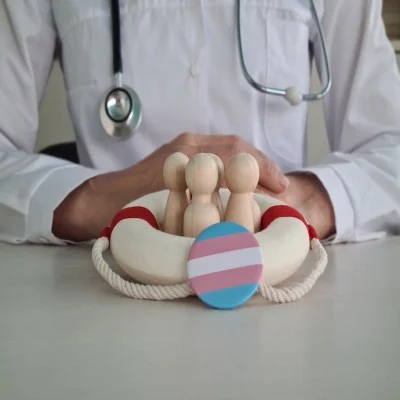On World Heart Day 2022, the Mexican Society of Cardiology, the Inter-American Society of Cardiology, and the World Heart Federation joined forces to address the heightened risk of negative cardiovascular health outcomes in transgender and gender-diverse (TGD) individuals.
This article discusses multiple factors contributing to this issue, including social stigma, limited access to healthcare, and a shortage of research on their specific needs, hindering tailored medical treatment. Mitigating adverse cardiovascular events in TGD individuals necessitates actions like reforming medical education, conducting more inclusive research, and promoting broader societal initiatives to combat stigma against TGD individuals.
Cardiovascular diseases (CVDs) are the leading global cause of death, accounting for nearly 32% of annual deaths. Minority groups bear a disproportionate burden of these diseases due to systemic health disparities. Gender significantly influences the risk of developing cardiovascular problems, with gender non-conforming individuals facing a higher risk. For instance, transgender women have a 2.07 times higher likelihood of coronary heart disease/myocardial infarction compared to cisgender women. Transgender individuals also exhibit higher rates of risk behaviours, such as heavy drinking and lack of exercise, leading to multiple chronic diseases like type 2 diabetes and arthritis.
While preventative medicine and lifestyle modifications can potentially reduce CVD incidence in the transgender community, they also face unique sociocultural factors requiring clinical attention. Collaboration between disciplines and sectors is essential to address this issue.
A public call to action by the Mexican Society of Cardiology, the Inter-American Society of Cardiology, and the World Heart Federation highlighted this concern on World Heart Day 2022. This declaration aimed to mobilise cardiovascular health organisations to address the increased incidence of adverse cardiovascular events in the transgender community in Latin America. This report seeks to supplement this call to action by offering a global perspective on health disparities in transgender communities, particularly cardiovascular health, and outlining priorities for advancing equitable healthcare.
Social determinants of health, including socioeconomic status, race/ethnicity, gender, and housing situation, profoundly influence an individual's health. These factors hinder access to healthcare and induce physiological stress and inflammation, contributing to negative health outcomes. For instance, living in disadvantaged neighbourhoods correlates with elevated levels of inflammatory biomarkers linked to CVD. The transgender community faces unique challenges, including public harassment, intimate partner abuse, substance use disorders, and mental health complications, all of which heighten their risk of CVD. Additionally, the process of identity development for transgender individuals can exacerbate stress and increase CVD risk. Protective factors such as residing in progressive regions and sociodemographic advantage can mitigate stress levels. The Minority Stress Theory (MST) and Intersectional Transgender Multilevel Minority Stress model elucidate how stigma at individual, microsystem, and macrosystem levels impacts cardiovascular health. Interventions targeting stigma beyond clinical settings are necessary to alleviate minority stress and improve cardiovascular health outcomes for the transgender and broader LGBTQIA+ community.
The latest ACC/AHA guidelines emphasise patient-centred prevention of cardiovascular disease (CVD) through team-based care, shared decision-making, and consideration of social determinants of health. However, TGD patients face significant disparities in healthcare access and experiences due to sociodemographic factors and challenges in the patient-provider relationship. The lack of standardised methods to collect gender identity information and inadequate training on TGD-specific needs exacerbate these disparities. Healthcare professionals' attitudes, often influenced by heteronormativity, further hinder effective care for TGD individuals, leading some to seek medical services abroad. Efforts such as narrative reviews and standards of care publications guide improving TGD healthcare, highlighting the importance of integrating this knowledge into healthcare education to create safe spaces for TGD patients.
Healthcare providers must educate themselves about the transgender community and strive to create inclusive environments in their practices. Furthermore, comprehensive and inclusive research is needed, including controlled clinical trials on gender-affirming hormone therapy and studies addressing the needs of the aging transgender population. Building trust within the TGD community in a historically heteronormative healthcare system is crucial, requiring meaningful educational initiatives and research efforts that amplify marginalized voices. Collaboration across sectors is vital in achieving the overarching goal of reducing cardiovascular disease rates and narrowing health disparities among social groups.
Source: Global Heart
Image Credit: iStock







